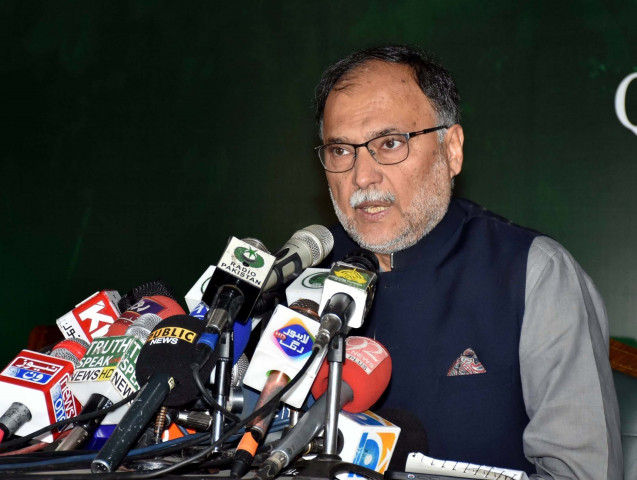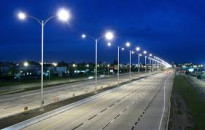Political instability biggest threat to economy: Iqbal
Says democratic govt’s ouster resulted in energy crises since 2010

Planning Minister Ahsan Iqbal on Saturday said that political instability and adventurism had been the biggest threat to Pakistan’s economy.
He was speaking at a Round Table Conference on ‘Pakistan’s Economics’ jointly organised by the planning ministry and the Lahore School of Economics in Lahore.
Iqbal said that in order to earn policy dividends, there needed to be continuity as “policies take root, grow, evolve and start bearing fruits over a decade”. Thus, policy efforts to expand a resource base in Pakistan (undertaken by the PML-N’s government in its tenure) failed to bear fruits because they became a victim of political instability, he added.
In the proposed solutions, WTO Chair and LSE Economics Dean Azam Chaudhry stated that measures suggested by the IMF, which the incumbent government might be forced to implement, were necessary for Pakistan’s economy.
In vision 2010, Iqbal said, it was identified that Pakistan must expand its energy capacity (despite the fact that Pakistan was an energy surplus in the 90s).
However, the minister said that the democratic government was thrown out and as a result, Pakistan faced one of the worse energy crises in 2010 and onwards.
He said that in 2013, his office came up with ‘Vision 2025’ that envisioned Pakistan becoming one of the top 25 economies by 2025.
The government took all measures to actualise that goal by overcoming law and order issues, defeating terrorism and breaking bottlenecks of energy and infrastructure (through CPEC). As a result, think tanks like PWC started predicting that Pakistan could become a top 25 economy by 2025.
He said the entire momentum that Pakistan picked up from 2013 to 2018, got lost to the adventurism of “Tabdeeli”.
Further, he said the CPEC’s initial phase of infrastructural and energy projects was to be followed by the establishment of Special Economic Zones (SEZs) by 2024. However, from 2018 to 2022, “work never started on five out of the nine proposed SEZs”, he said. “There is embarrassing progress on the four remaining SEZs.”



















COMMENTS
Comments are moderated and generally will be posted if they are on-topic and not abusive.
For more information, please see our Comments FAQ